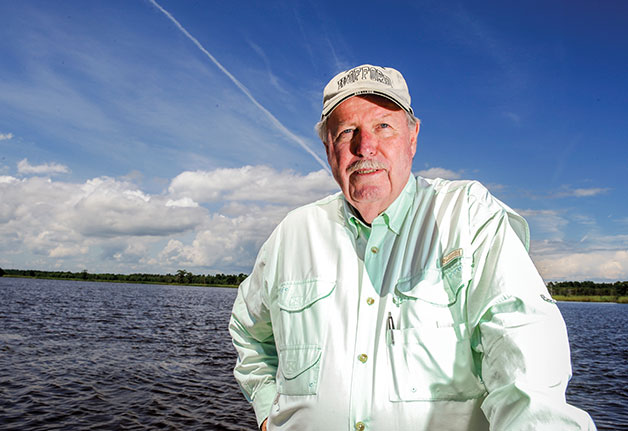R. K. “Kenny” Williams ’66 considers the South Carolina wetlands the best classroom in the world, and if that’s the case, this master student and master teacher gets top marks.
In the spring the South Carolina Chapter of The Wildlife Society recognized Williams with the Lifetime Achievement Award for his nearly 50 years of service to the Southeast and the state as a certified wildlife biologist.
“Waterfowl habitat is my forte, but baseline reports for conservation easements have become a large part of what I’ve done. Over the past 20 years, I’ve probably done 65 to 70 different properties. I’m pleased with that,” says Williams, who spent 10 years as a regional biologist with Ducks Unlimited before continuing his career as a land management consultant. Before that Williams worked for 22 years as the manager of Kinloch Plantation in Georgetown, S.C.
“Managing and protecting our green spaces are ways that we can offset the effects of population growth and urban sprawl,” says Williams. “It’s a matter of protecting water quality, air quality and wildlife habitats. You can’t protect enough wildlife habitat and green space.”
Williams says he majored in biology at Wofford at a time when most biology majors became doctors. He took a different path that led him to Auburn University for a master’s degree.
“When I first went to work in the Santee Delta in 1969, until about 1986, we had a tremendous population of waterfowl — green-wing teal, diving ducks, northern pintail, American wigeon — but they have dwindled. The continental population, however, is at an all-time high,” he says. “My theory is that the most successful conservation plan ever conceived — the North American Waterfowl Management Plan — coupled with global warming has created a short-stopping phenomenon.”
Williams explains that improved habitat conditions and milder temperatures in northern climates have created conditions that make it attractive for waterfowl to migrate lesser distances. “Mallards can now spend the whole winter in Manitoba if they’re not pushed out by snow cover and freeze-up.”
Although semi-retired Williams still enjoys monitoring conservation easement lands, doing field trips and workshops for college students, and speaking to groups about wetland ecology. He also loves spending time with his children and grandchildren.
“I’ve enjoyed my career and continue to enjoy every bit of it,” he says, “except maybe for the mosquitoes.”
by Jo Ann Mitchell Brasington ’89, Fall 2016
